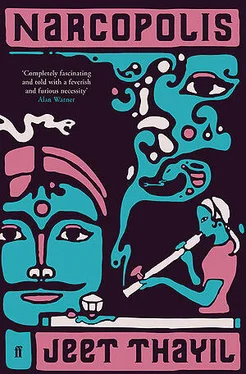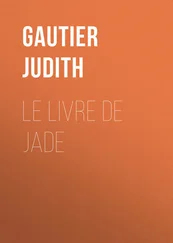The poet appeared unfazed by the interjection. The Modern Autists were reckless originators, he said, going where no one else had dared to venture. They were truthful innovators even when they were false and dissolute, yes, because they were babes in the urban wood. He called them chinless wonders, though I may have heard it wrong, he might have said sinless. I was nodding off a little by then. These bold men, for they were all men, overturned the dictatorship of the Academies and the Schools of Here and There, Iskai said. They made it new, in Ezra’s inimitable words, which, as poets know, is not a dictum as much as a piece of practical advice. At the mention of poetry, there was some unhappy murmuring in the audience. Sensing he had lost them, Iskai turned to Xavier, who sat motionless in his chair.
‘Perhaps you can tell us what the falling-out was about?’
‘Colour, brother Iskai. What else? It brought us together and tore us apart. I should mention that things were more desperate then. We were at the JJ School of Art, learning to paint by numbers, eating dead meat shipped out by the Royal School and the Bengal School, and then we discovered Picasso and Van Gogh and Gauguin. We were young, feeding off each other. Everything was wide open. Now, of course, things have changed. I don’t agree with their ideas about colour and I have no doubt they disagree with mine.’
There was an uncomfortable silence while the painter, spent from his outburst, stared expressionlessly at his audience. The silence stretched until a small figure at the back of the room raised his hand and Xavier pointed at the man.
‘Didn’t art school teach you anything about colour?’
Xavier said, ‘Certainly not, I learned about colour by looking at flowers. Let’s not talk about school.’
Iskai said, ‘No more questions, question time is later. We will proceed in orderly fashion, please. First, the guest of honour will make a speech. Join me in welcoming India’s own Newton Xavier.’
But the guest of honour was unable to get up from his seat. The peon shoved his hands under Xavier’s armpits and heaved. Nothing happened. Then Iskai suggested that Xavier read sitting down and the peon handed him a sheet of paper. The painter held the page in one shaking hand, the other pincering his spectacles in a two-fingered grip. He looked old and terminally ill. I wasn’t the only one who expected him to topple from his chair and it struck me that the people in the audience weren’t interested in Xavier’s poems or his views on colour. They were there to see if the bad boy of Indian art would live up to his reputation. They hoped to see him combust in front of their eyes, or implode, or die of a heart attack, or leap from his seat and rape an audience member. The worse his behaviour the happier they would be. It was voyeurism at its vilest and we were drinking in the details: the stains on his kurta — drink? blood? semen? — the disreputable rubber slippers, his binge stubble and rapid eyes, his death pallor, the wonderful fact that he was too drunk to stand.
‘Now you know what legless means,’ said the matron beside me in a stage whisper that carried through the room.
‘Madam, I have warned you before about your bad habit. Please keep quiet or I will be forced to have you ejected permanently,’ said Iskai, suddenly furious.
Someone had placed a glass of water near Xavier but in lifting it he shakily spilled some on the table and he put the glass down without wetting his lips. He was going to read a new poem, he said, speaking so softly that the audience had to lean forward to hear him. Then he started to read and his voice was mild, the words perfectly articulated, the accent round and rich and neutral, not British or American or Indian but godlike. Most striking of all was the tone of absolute authority. I heard the coldness under it and it gave me a shiver, even in that heat it gave me a shiver.
*
The poem, told in rhyming quatrains, was set in a future wasteland of war or famine or disease, where some unnamed catastrophe had culled much of the world’s population. To protect themselves against the invisible, nations had broken up into smaller states, each with its own government, religion, language and particular social customs. Travel between cities was insanely complicated and travel between states was banned by all governments. Citizens were required to carry passports with them at all times. Xavier’s poem concerned a rural Moroccan boy who falls sick while getting ready for school. His parents take him to a hospital in Fez and are told by the authorities that their son will not come out of his coma and further contact with him will only ensure their own decline or imprisonment, because they were out of their municipal precinct and had broken the law by coming to Fez, and were in fact continuing to break the law by remaining there. The parents are forced to abandon their son and return to their village, where the mother soon develops agoraphobia and the father becomes a systematic abuser of the female inmates in the small mental institution in which he works. The boy wakes up in a city he doesn’t know, alone in a room in the middle of the night, except it isn’t night at all, because a red light is streaming into the window. He thinks: I am dead, like Jed-di, like Ammi and Abba. Everyone died and I am in hell because of the bad things I did. He doesn’t know it but he has recovered. He continues to lie in bed, attached to a glucose drip and a monitor. Then he sees that the moonlight has become redder, so bright it seems the devil himself has come to pay him a visit. The boy walks to the window and sees the building is on fire. He runs down the endless corridors of the hospital, which, he soon understands, is deserted but for him. Then followed two quatrains of landscape description, the desert at night and in the early dawn, the necessity of finding drinking water, the portability and efficacy of dried fruits and honey, and the miraculous restorative powers of some varieties of cactus plants. When the poem returns to the boy, he is in his late teens. He is the leader of a band of rebel nomads, youths who travel by night and hide by day, living off the generosity of villagers. In the winter of the boy’s eighteenth year, he and his comrades come to a small town that the boy recognizes as his village, now grown into a place of some importance. From a hill the youths gaze at the sleeping town and the boy identifies the cemetery, the insane asylum where his father worked, the bakery and teashop, and so on, but try as he might he cannot locate his house. ‘Let’s go down and wander around,’ his closest comrade and second in command suggests. ‘We’ll wander around until it’s found, / Then we can rest.’ The boy does not reply. He realizes that the reason he could not identify his home is because the modest house in which he grew up is now a mansion with a pool and a garden and he can even see children’s toys scattered on the lawn. The group begins to descend into the valley when the boy changes his mind. They will skirt the town and travel on, he says. The poem ended with these lines:
It wasn’t that I wanted to go home,
Who knew home? I only knew alone .
What I wanted was to be elsewhere,
Somewhere, anywhere but there.
Xavier continued to talk, though he was no longer reading the poem. ‘I woke up to bright sunshine this morning,’ he said, ‘or it could have been yesterday morning, who’s to know? In any case, I woke to bright skies and I thought, for some of us it’s a beautiful day. I.’
‘Why wouldn’t it be a beautiful day for you? You come to India only to escape the winter. The papers say you are moving from the UK to the US, to become a citizen of a rich, or I should say richer, country. They say exile suits you.’
Читать дальше












